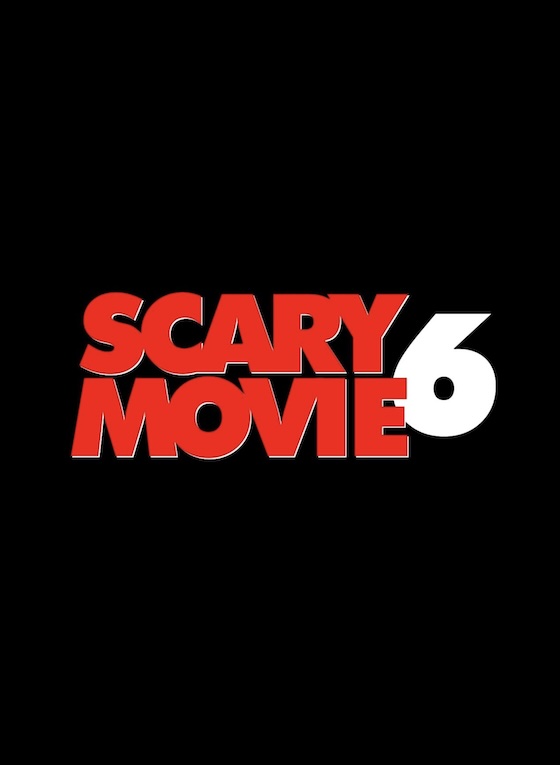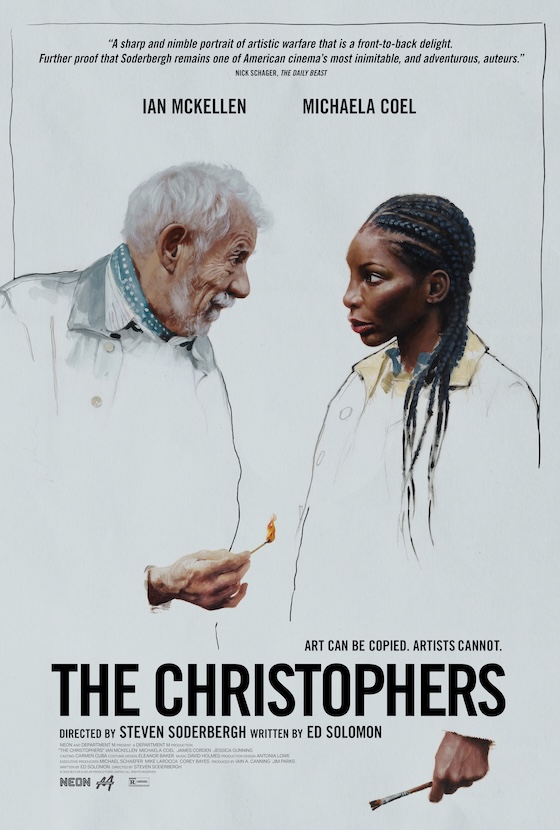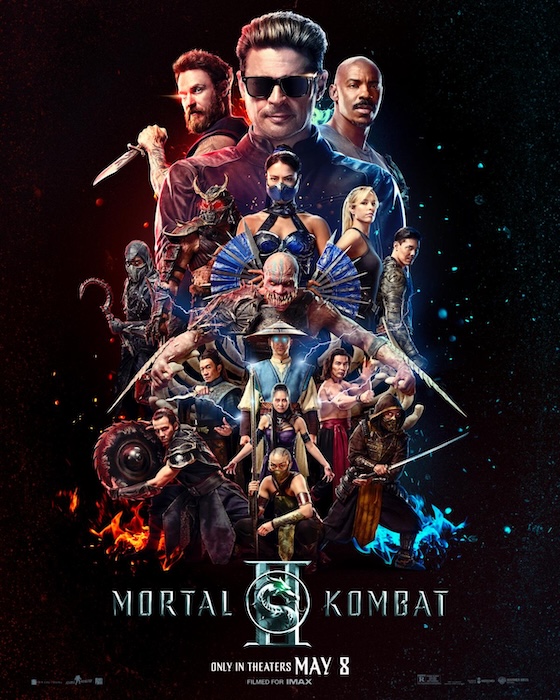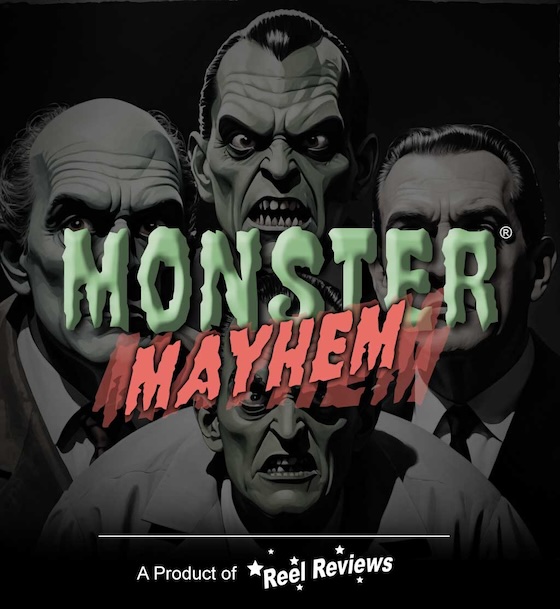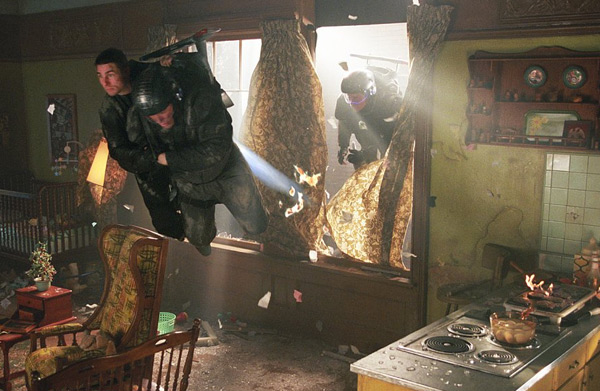
"In the Land of the Blind, the one-eyed man is King."
- Desiderius Erasmus, Adagia (III, IV, 96)
Before J.J. Abrams ruled the airwaves with his mediations on alternate timelines and differing realities with LOST, there was Spielberg's take on the consequences of altering and interfering with the natural order of action and consequence. Heavily saturated with the function of the eye and what it sees, Minority Report is a one-of-a-kind stylized description of a darkly bright future built around preemptive strikes and the consequences of being utterly unaware when the future is assumed or known; it's classic free will vs. determination territory even if it feels somewhat incomplete in its narrative.
Time has been kind to Spielberg's treatment of the future in Minority Report. The film, from 2002, absolutely pops with cerebral energy a tireless liveliness that doesn't seem passé or simply misguided in its assessment of man's future. Based on a story by Philip K. Dick and the reaction of the United States Government to 9/11, the film is a sparkling gem of science fiction crime noir. Despite its overwhelming and completely necessary use of advertising and product placement (essential in order to achieve the affect of verisimilitude), there's no embarrassing guffaw ala Kubrick's masterpiece 2001: A Space Odyssey - suggesting that Pan Am (now defunct, but very much alive circa 1969) would be the company flying man to the moon nor is there a dated bone it this film's skeletal structure. Indeed, Minority Report is still a vital part of a master storyteller's resume. {googleads}
Newly released on Blu-Ray in a stunning transfer of clarity and vision, Minority Report springs into the action of the sci-fi field that his own Kubrick-inspired AI could not; it absolutely snaps with film-noir dialogue and Hitchcockian stylings and manages to recapture the visual humor that the Spielberg of the 1980's was so highly praised for. Starring Tom Cruise as John Anderton, the everyman-type of hero, Minority Report tells the story of a futuristic frame-job in which one detective, who trusted in the system of Precogs, must fight against rules he once enforced in order to reclaim a balanced sense of right and wrong and purpose in a world void of privacy. Aiding, abetting, and obfuscating Cruise (who turns in a great performance) is a delirious cast that includes Collin Farrell, Samantha Morton, Max von Sydow, Neal McDonough, Peter Stormare (who has yet to â"phone in" a performance), Lois Smith, and Steve Harris.
Rich in camera movement and fluid in design, this is cinematographer Janusz Kamiński's masterpiece of layered futuristic styling; of particular note is the camera's jarring when the action never dull becomes too intense. Never one to announce himself, Kamiński's camera is effortless in its progression and allows the audience to think for themselves about the meaning of certain frames and shots. The film, even in its original release, is a technical marvel of motion and method a film where sound (in which it won the Academy Award for), framing, color palettes (note the graying of the film yet somehow awash with tinges of blue), and editing (courtesy of Michael Kahn) merge into one stream to create a complete meditation on the outcome of believing solely in predictions and a world without retreat.
Also of note is John Williams thundering score, a tonal achievement that builds its cathedral of sound upon the classical resonance of a bygone era; it's an interesting choice that certainly pays off in subtle expressionistic strokes when the chaos is at bay, but the chase is in full-fledge glory. Even in the quieter moments of Minority Report, the score builds in epic sci-fi suspense. Not even in Lucas' Star Wars prequels was Williams this inspired by a narrative and its visuals.
While this film is certainly a classic from Spielberg's vast canon of work, what keeps this film from being a five-reel affair is its â"happy" ending; something, besides Munich, Spielberg continues to epically disappoint with. Frame-by-frame and beat-by-beat, the film, as a philosophical treatise both in tone and treatment, cries no, begs - for Anderton to be killed or, in the very least, put in the holding cell for all eternity. Spielberg, surrendering to the trappings of that Pinocchio â"I'm a real boy" mentality he is so wildly known for doing, does not beckon to the script's call; it's a betrayal the film doesn't deserve from its director. The film's bleak palette and styling complete with zooming wall-crawling automatic cars and free-firing sonic guns and invading adverts that know your name suggests there is something darker to this future, something that deflates and contradicts the optimism the film concludes with. There is no peace here and these characters aren't safe unless they can be controlled and no righting of wrong-doings will be tolerated by such a vacant and unfulfilled world of unprivatized automation. Now, with a darker and less ambiguous ending, the film would feel more complete in tone and much more of a passionate sci-fi feast rather than its â"and they all lived happily ever after" suggestion. Granted, it's the difference between a choice of desserts one more satisfying than the other but still a decision that greatly impacts the overall catharsis of the film. More importantly, imagine if Anderton had been killed by Burgess as the Precogs foresaw, thus proving their ability to reign in crime? Think about it. With that ending and its consequence of a society that doesn't allow its citizens to change their minds EVER, Spielberg, in my opinion, would have trumped his friend and influence, Stanley Kubrick, with a true classic of philosophical science fiction.
Despite its inconclusive ending, Minority Report succeeds in simply being an action piece of liquid-blue momentum and light science fiction journeying. Its sanguine ending might compromise its inherent philosophical undertones, but certainly doesn't render the film null and void. While Spielberg attempts to genre-hop with each new film he directs, it doesn't take a rocket scientist to suggest that his earnest heart as Disneyfied as it might be sometimes belongs to the visceral world of science fiction and here, inside the darkly lit advert-splayed halls of Minority Report, it beats its hardest.
Blu-ray Details:
The Blu-Ray release is a weighty 2 disc affair that begs for rich and detailed viewing by its owners.
Screen Formats: 2.39:1
Subtitles: English, English SDH, French, Spanish
Language and Sound: English: DTS-HD Master Audio 5.1 French: Dolby Digital 5.1 Spanish: Dolby Digital 2.0
Disc one is the movie in lossless DTS-HD Master Audio 5.1.
Disc two contains the following bonus materials:
Supplements:
Featurettes:
- The Future According to Steven Spielberg is an extended, interactive interview with the director in eighteen chapters, in which one can view art, storyboards, cast and crew interviews, and behind-the-scenes footage and production stills.
- Inside the World of Precrime is a documentary about the Washington Precrime Unit, about ten minutes long. This is an extension of one of the film's advertisements.
- Phillip K. Dick, Steven Spielberg and Minority Report is a feature about fourteen minutes long with the author's daughter.
- Minority Report: Future Realized showcases the science behind the film and what innovations it predicted and used.
- Minority Report: Props of the Future is a nine-minute feature that highlights Spielberg's collection of memorabilia from the film.
- Highlights from Minority Report: From the Set in which two sequences are analyzed: "The Hoverpack" and "The Car Factory."
- Minority Report: Commercials of the Future is a four-minute feature that details the adverts used throughout the film.
The rest of the extras come directly from the previous DVD release.
Number of Discs: 50GB Blu-ray Disc Two-disc set (2 BDs)


